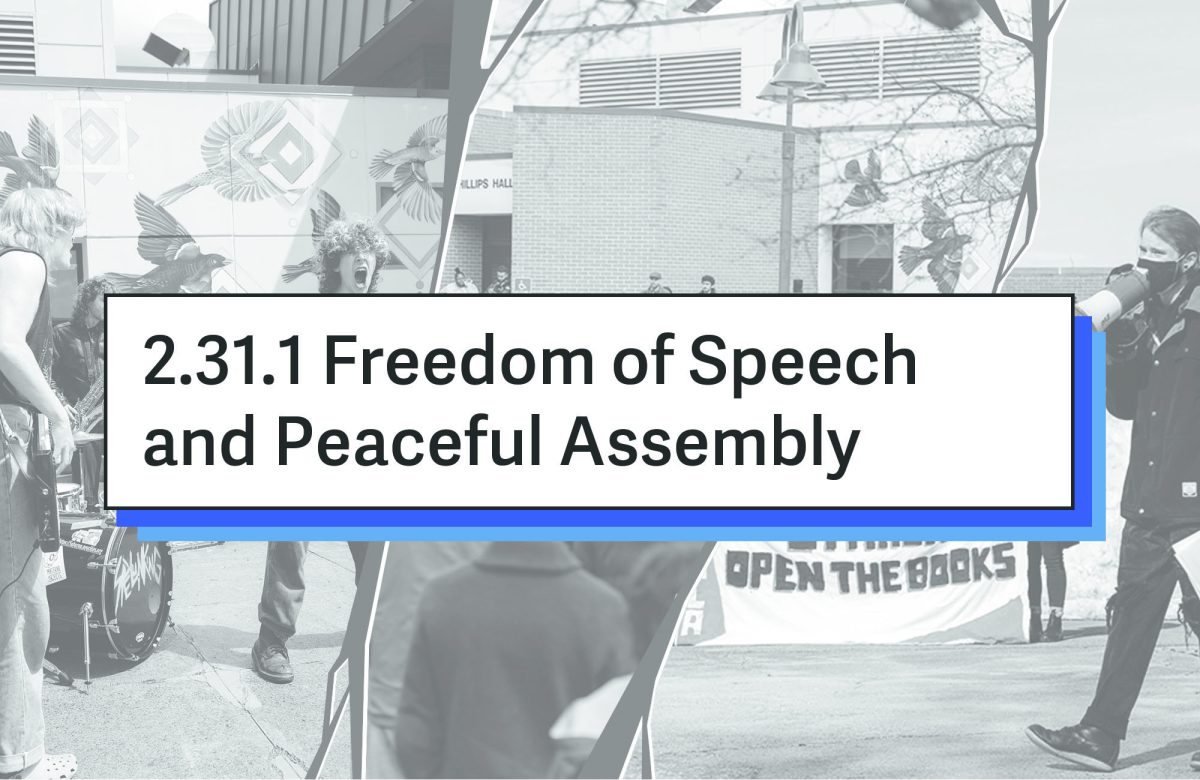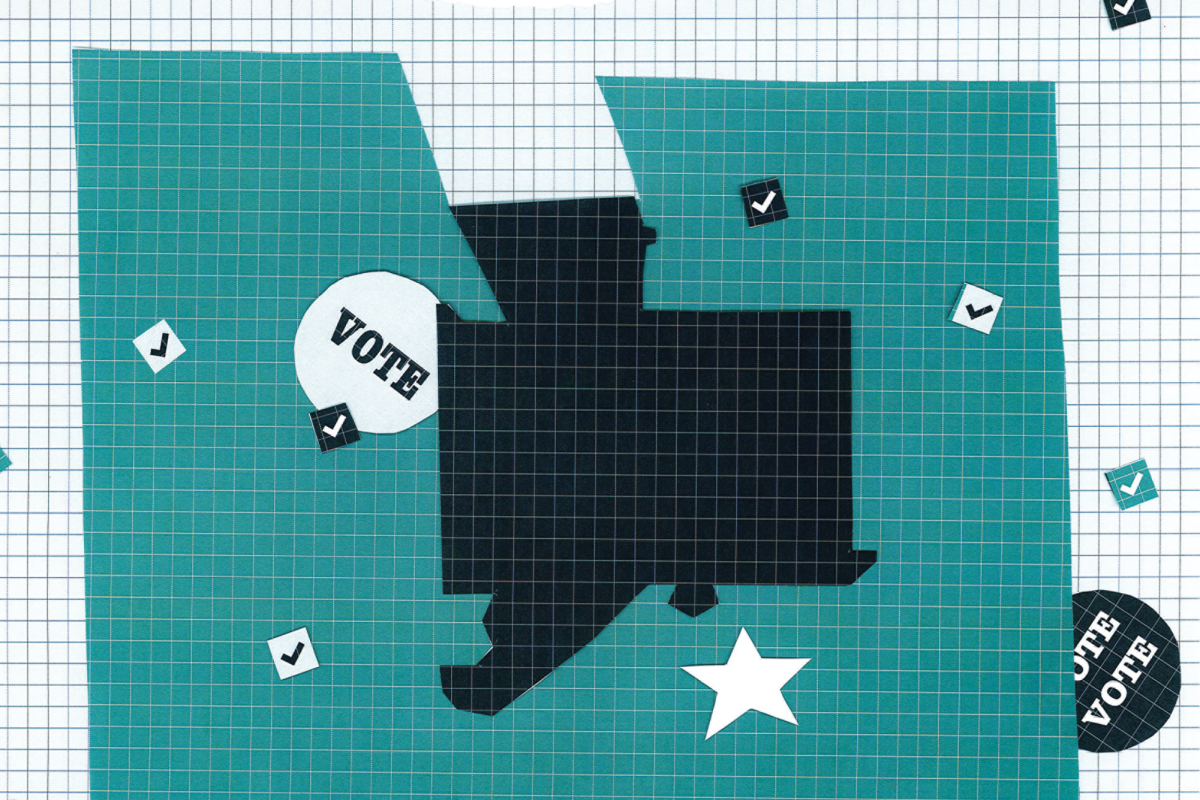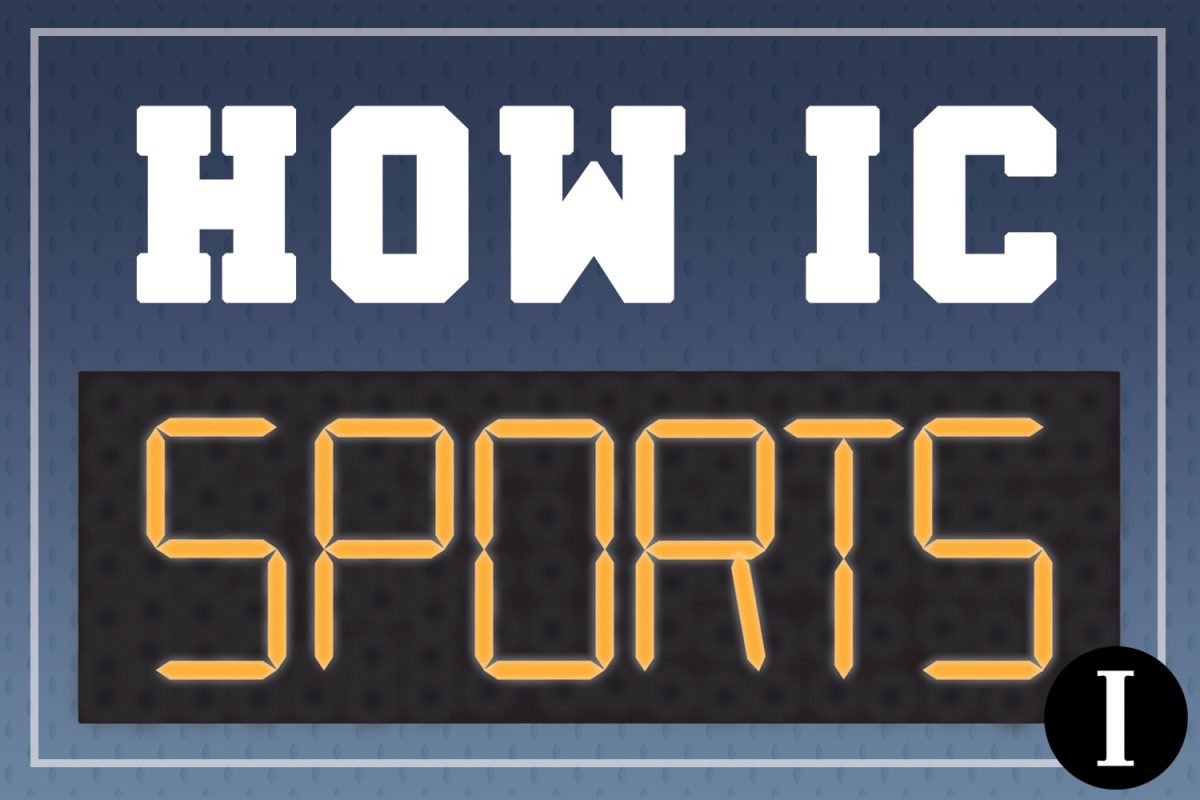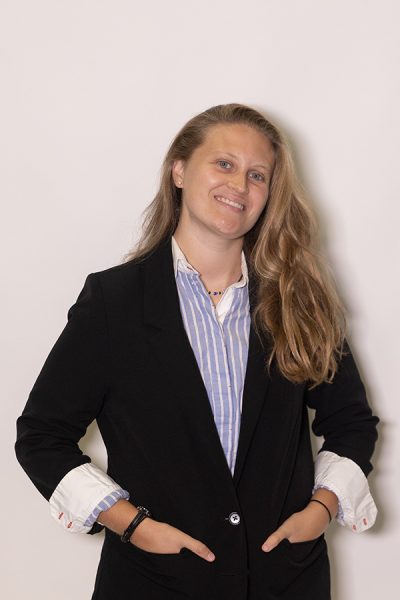Ithaca College has a rich history of expression, and its free speech policy has changed over time as issues arise within and beyond campus. The college’s free speech policy, written in Section 2.31 in the policy manual, highlights how the college responds to free expression while maintaining public order.
The college is a private institution, so it does not legally have to follow the First Amendment and protect students’ rights to free speech and expression, according to the American Civil Liberties Union of New York. However, Emily Rockett, vice president, general counsel and secretary to the board of trustees, said the college must follow sections of the Higher Education Act of 1965 because it receives student financial aid from the federal government.
“As an institution that receives Title IV funding, we have to abide by Title VI, Title VII and Title IX, so you can’t discriminate in the educational environment or terms and conditions of employment on the basis of sex, sexual orientation, race, national origin, color — all of the protected classes,” Rockett said. “It’s this fine line of if you are aware of an environment where … illegal discrimination gets in the way of an individual’s ability to experience their education, do you have to do something about it?”
Rockett said private colleges often promote free speech, freedom of inquiry and freedom of expression for educational reasons. She said Ithaca College establishes these values in section 2.31.1 of the Student Conduct Code within the college’s policy manual.
Notably, college administrators did not shut down Ithaca College Students for Palestine’s April 20 protest during Accepted Students Day events. Dave Maley, director of public relations, told The Ithacan on April 20 that, according to 2.31.1, the students would not be punished because the college supports students’ right to protest and they did not disrupt or create a safety hazard. Peaceful demonstrations are allowed as long as they do not include prohibited actions, like disrupting college events, classes or lectures; engaging in theft or destruction of college property; and acting in a way that threatens people on campus or college property.
Rockett said 2.31.1 complies with New York Education Law 129 A, Section 6430. This article mandates that colleges set written rules to maintain public order on campus and college property and clearly define penalties for breaking the rules. The article cannot “be construed to limit or restrict the freedom of speech and peaceful assembly.”
Colleges in New York must file a certificate of compliance with the Department of Education annually to receive state aid and file a copy of written rules for approval every 10 years.
Michael Dorf, Robert S. Stevens Professor of Law at Cornell University, focuses on constitutional law and covers current events in law on his blog. Dorf wrote in 2017, and reaffirmed in 2023 as discourse about the Israel-Hamas conflict on college campuses gained national attention, that it is especially challenging for residential colleges to find a balance between creating an environment where students feel safe and where they feel they can express themselves.
“Campuses are not just places for faculty and students to teach, learn and study,” Dorf said in the 2017 blog post. “They are also homes … and because it is in part a home, students should be entitled to some greater privacy and ability to shut out unwelcome messages; but because it is not only a home, at least in some times and some places on campus students should not be entitled to quite the level of protection from unwanted messages that we think everyone is entitled in their home.”
Sean Stevens, chief research adviser for the Foundation for Individual Rights and Expression, said one of the missions of colleges and universities is to share ideas and conduct forward-thinking research. He said one of the ways higher education can fall short of that mission is by stifling free speech.
“[Colleges] are the centers of how we’re going to advance human knowledge [and] that depends on free expression,” Stevens said. “Faculty has to be able to push the envelope with research, they have to be able to challenge dogmas and the well-accepted main principles of science. … [If] nothing is 100% proven, then everything can be questioned.”
Stevens said that encouraging productive free speech on campus starts with faculty and administrators modeling appropriate behavior and remaining impartial.
“Students are going to be students,” Stevens said. “They’re going to protest. They’re going to complain about things. That’s going to happen. So you have to show backbone, especially the administration. … Schools need to adopt their viewpoint-neutral stance on expression. They do. It’s hard, but we all have speech we don’t like.”
Tom Dunn, director and deputy chief of the Office of Public Safety and Emergency Management at Ithaca College, said officers only intervene when an individual is speaking if their speech creates a health or safety danger to themselves or others.
“We would not do anything to interfere with a person’s freedom of expression, possibly against another person’s point of view,” Dunn said. “We would certainly want to encourage all points of view to be listened to and respected. And certainly, we’d never advocate violations of policy against or directed toward another person, and that’s when free speech crosses that line.”
Dunn said officers cannot legally punish students for using hateful or degrading language unless it includes a threat. The college does not have a hate speech policy, but the college launched the Bias Impact Reporting Form during the 2018–19 academic year as one way for members of the college community to report hate speech and bias incidents.
“As a law enforcement officer, I can’t stop you from using the N-word,” Dunn said. “I would tell you it’s vile, it’s hateful, it’s despicable. But I can’t charge you with that. That’s not a crime. But if you as a student … were to say that at another person in a directed manner, but not a threatening manner, I might send a report to [the Office of Student Conduct and Community Standards] about that.”
Rockett said it is challenging for the college to set policies about hateful or offensive speech because there is no firm legal definition in the United States.
“What our policy does is tie speech obligations to the law, which when the law changes, the Supreme Court can make different interpretations of what it means to exercise your right to protected speech versus discriminate against somebody unlawfully,” Rockett said. “When the college ties its free speech policies to the law, they don’t have to change what those policies say over and over based on evolving legal requirements. It’s — you follow the law. And there are pros and cons to that. Some institutions make a policy choice of, ‘We’re going to be really clear about what you can and can’t say.’ And they may or may not be legally allowed to do that at any given moment, depending on the state of the jurisprudence around free speech.”
Rockett said college leaders are not planning to introduce policies specifically addressing hate speech.
“There has not thus far been discussion of amending the policy manual because the provisions are pretty broad and pretty clear and they’re applicable to lots of different situations,” Rockett said.
Rockett said anyone can propose changes to the policy manual. Students, faculty and staff can talk to representatives from the Student Governance Council, Faculty Council and Staff Council, respectively, who would bring the concerns to the President’s Cabinet and Board of Trustees. The Board of Trustees sets policies by directing them to Ithaca College President La Jerne Cornish, who delegates them to vice presidents to develop. The Office of the General Counsel reviews all new or amended policies to ensure that they meet legal requirements and requirements set by the college charter and bylaws.
Rockett said vice presidents select policy custodians to review policies annually. She also said the Office of the General Counsel follows up with faculty and staff on a yearly basis to remind them of policies and how to amend them. There are many reasons to amend policies, Rockett said, but changes often come after administrators decide policies are not working as intended or after the state or federal governments create new legal requirements.
Stevens said administrators need to draw the line of when free expression can become disruptive behavior, and when students cross the line, schools need to make it clear that the behavior is unacceptable.
“You can stand up and hold the signs, but you can’t shout a person down so that other people can’t hear them,” Stevens said. “Administrators and faculty need to step in and enforce where those lines are. … Use your speech in a constructive way, not to prevent other people from hearing or experiencing what they want to experience. And I think faculty and administrators can do a much better job of actually modeling that kind of behavior. Because students and yes, even faculty, are gonna protest.”
This is a collaboration between The Ithacan’s news section and the new investigative team. It is part of a two-part series. View the other article online.























